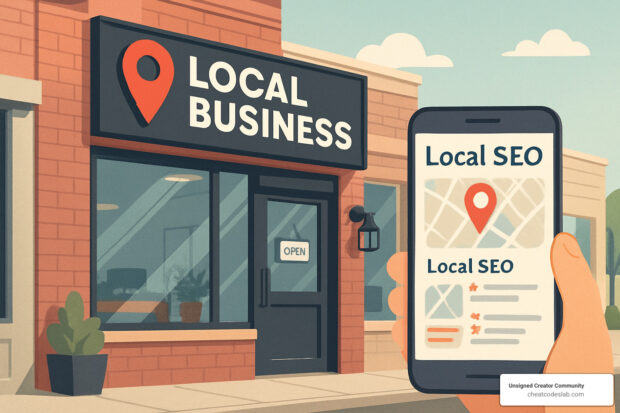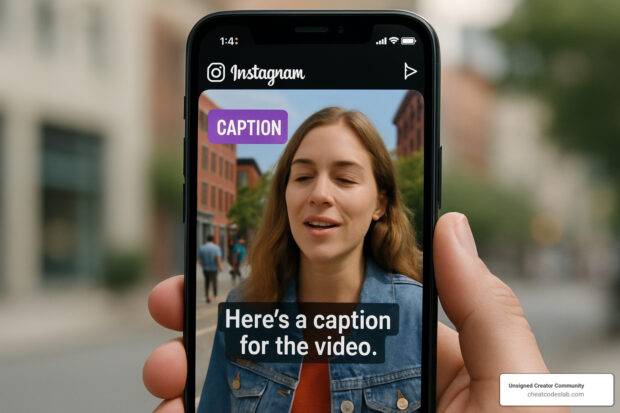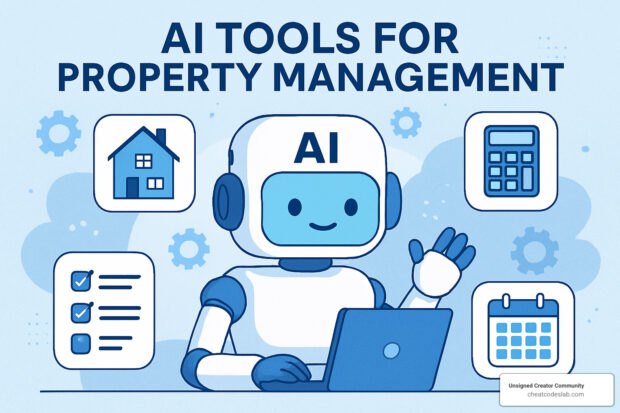
How AI for SEO content can boost your digital marketing
Quick answer: AI for SEO content helps digital marketers quickly create content, find effective keywords, optimize on-page elements, automate internal linking, and identify content gaps to improve rankings.
Here’s how AI for SEO content improves your strategy:
- Keyword optimization: AI uncovers high-performing keywords for targeted content.
- Faster content creation: Instantly generate SEO-friendly articles and outlines.
- Competitive analysis: AI analyzes top-ranking competitors to spot content opportunities.
- Improved on-page SEO: Automates internal linking, title tags, and meta descriptions.
- Content gap identification: Identifies valuable topics missing from your website.
You’re not alone if you find SEO overwhelming. As Daniel Pfeifer, an SEO specialist, says:
“I absolutely loved using this tool! Not only does it help me write great content, but it also ensures that my content is optimized for keywords so that I can rank high in Google search.”
I’m digitaljeff—a futurist and content strategist with over 20 years of experience driving engagement and growth through digital media. I’ve generated over 1 Billion views leveraging cutting-edge strategies, including AI for SEO content, helping brands scale their online presence.

Related content about AI for SEO content:
– AI-based marketing solutions
– AI SEO software
– AI tools for website SEO
Understanding AI for SEO Content Creation
The world of SEO is changing faster than an AI chatbot can write an article (which, trust me, is pretty fast!). At the heart of this shift is AI for SEO content, a powerful tool changing the way marketers and creators build and optimize content. But what exactly does all this mean, and why should you care?
Put simply, AI content generation uses advanced machine learning algorithms and natural language processing (NLP) to create, optimize, and analyze web content. Think of it as having your very own super-smart assistant who never sleeps, never takes coffee breaks, and can process vast amounts of data within seconds. While humans might take days or even weeks to sift through data and spot important patterns, AI can identify insights and trends almost instantly. Pretty impressive, right?
In fact, 86% of enterprise SEO professionals have already incorporated AI tools into their marketing toolkit. This widespread adoption clearly shows that using AI for SEO content isn’t just a passing trend—it’s a proven way to boost SEO performance.
Google itself has clarified that it doesn’t matter how your content is created, as long as it’s helpful and valuable to the reader. According to Google’s guidance on AI-generated content, the quality and relevance of the content are far more important than whether it’s human- or AI-written. That means the key isn’t how you write it—it’s how helpful it is.
If you’re curious about how you can leverage this technology without losing your human touch, resources like SEO Cheat Codes have got your back, helping you steer AI content creation while staying true to Google’s E-E-A-T guidelines (Experience, Expertise, Authoritativeness, and Trustworthiness).
What is AI SEO and How Does It Work?
You might be wondering: what exactly is AI SEO? At its core, AI SEO is about using artificial intelligence to improve your site’s organic search performance. It’s like having a personal SEO expert who’s working tirelessly behind the scenes (minus the caffeine addiction and office drama).
Here’s how it works. AI SEO tools dive deep into enormous amounts of data, uncovering patterns and relationships that affect your site’s rankings on search engines like Google. They analyze search intent, helping you understand exactly what users are looking for when they type in their queries. This means your content isn’t just filled with random keywords—it’s genuinely useful and answers your audience’s actual questions.
These smart tools also examine the search engine results pages (SERPs) to see what’s already ranking well. They then guide you to create content that’s competitive and optimized for those exact keywords. Beyond just generation, they also identify key ranking factors, such as content length, readability, semantic relevance, and even internal linking strategies that can help your pages climb higher on SERPs.
In short, AI SEO is like having a mini marketing strategist in your pocket, ensuring you’re always targeting the right keywords and providing valuable, optimized content that both search engines and humans love.
Benefits of Using AI for SEO Content
So, why should you consider incorporating AI for SEO content into your digital marketing strategy? The answer is simple—there’s a lot to gain.
First off, there’s dramatic time efficiency. Imagine having more time to focus on big-picture planning instead of drowning in repetitive tasks. Studies show that 90% of digital marketers report significant time savings thanks to AI and automation. Freelance writer Rikke Ekelund shares her success story: “Last Friday, with the help of SEO AI, I wrote the article. I only edited slightly. By Sunday, I found the article on page 1 of Google.” Talk about quick wins!
Next up is content scaling capabilities. Thanks to AI, marketers can now produce content at a scale previously unimaginable. Some platforms have leveraged AI to create over a million unique, optimized pieces, enabling businesses to cover far more topics and keywords, update content frequently, and maintain a steady publishing schedule without burnout.
AI also excels at data-driven keyword optimization, uncovering keyword opportunities humans might overlook. It identifies long-tail keywords with lower competition, finds trending topics within your niche, and even highlights questions your audience is actively searching for. This means you never miss out on traffic-boosting opportunities.
But wait, there’s more! AI provides comprehensive competitive analysis to help you understand exactly what’s working for your competitors. It breaks down their content structure, reveals gaps your content can fill, and even pinpoints exactly which keywords your competitors rely on.
Perhaps most importantly, AI helps you achieve significant traffic growth through content gap identification. Nothing hurts more than realizing your competitors are getting traffic for topics you’ve overlooked. AI shows you exactly where those gaps are. One compelling case study reported a staggering 1,250% increase in traffic after implementing AI-powered content recommendations.
If you’re ready to tap into these remarkable benefits, check out AI Tools for Website SEO for a comprehensive approach to optimizing your content and growing your brand.
With the right AI SEO tools and a warm, human touch, you’ll be well on your way to SEO success—and maybe even get some extra coffee breaks along the way!
Implementing AI Tools in Your SEO Strategy
Successfully implementing AI for SEO content into your workflow doesn’t have to feel overwhelming. The key is approaching the process strategically, step-by-step, and focusing on how these tools can improve—not replace—your existing practices.
Let’s explore how to smoothly integrate AI into your SEO content strategy, so you can start seeing results without stress.

First things first: Start by assessing your current SEO strategy. Look at what’s working well and identify weak spots or tasks taking up too much time. For example, if keyword research feels like pulling teeth, that might be the perfect place to introduce AI.
Next, it’s important to select the right AI tools that align with your goals. If you’re new to these solutions, don’t panic—there are plenty of user-friendly options out there. The trick is picking the tool that best fits your team’s skills and the tasks you want automated or simplified.
Once you’ve selected your tools, the exciting part comes in—integration into your content creation workflow. Rather than completely changing the way you do things, think of AI as your new helpful assistant who slots right in. Start by using it for simpler tasks like generating initial outlines or performing keyword analyses. This gradual integration approach makes the transition smoother and less intimidating.
Of course, your team will need some preparation. Take the time to clearly and simply train your team on using AI tools effectively. Explain not only how each tool works, but also how to interpret the insights and recommendations it provides. Even the smartest AI needs human guidance to reach its full potential.
Lastly, implementing AI for SEO content isn’t a “set it and forget it” deal. It’s essential to continuously refine your approach by regularly reviewing performance data. Keep an eye on what’s improving (and what’s not), and adjust your processes accordingly. AI-powered Advanced SEO Techniques can help you fine-tune your strategy along the way.
Top AI Tools for SEO Content Optimization
The universe of AI SEO tools has exploded recently, making it easier than ever to optimize your content and boost your rankings. Let’s explore the most valuable categories, so you can decide which might benefit your workflow most.
For instance, content generators are excellent for quickly crafting first drafts, product descriptions, or FAQ sections. They also handle those little-but-important elements like meta descriptions and title tags. But remember, the quality can vary a lot—always review and refine AI-generated content carefully.
When it comes to keywords, traditional tools may miss deeper insights. AI-powered keyword research tools help you find related terms, understand search intent, group keywords into logical clusters, and even predict keyword difficulty—so you’re never left guessing what to target next.
To understand why your content isn’t ranking yet, look at AI-powered SERP analyzers. These tools break down top-ranking pages, revealing insights like ideal content length, structure, common topics covered, and even how competitors use images, videos, and schema markup to rank higher.
If you already have existing content that isn’t performing well, AI-driven content optimization platforms can be your new best friends. They scan your content and identify gaps, suggest internal linking improvements, and provide actionable tips for boosting readability and user engagement.
Speaking of readability, specialized readability improvers simplify complex sentences and help choose clearer wordings, making your content friendlier for both readers and Google alike.
For more detailed tool recommendations, don’t miss our guides: SEO Strategy Tools and AI SEO Content Generator.
Creating a Hybrid AI-Human SEO Workflow
Here’s a secret the top digital marketers know: AI for SEO content shines brightest when paired with human creativity and oversight. The magic happens when you combine AI’s speed and analytical power with your team’s unique expertise and human touch.
Why does human oversight matter? Simply put, AI isn’t perfect. As Kyle Byers, Head of Organic Search at a major SEO platform, advises:
“Human review is probably the most important thing to do in terms of avoiding risk. Every AI tool is known to hallucinate sometimes. So, make sure to check for accuracy.”
Ouch, “hallucinations” from your AI writing assistant? Not exactly something you want going live on your site. That’s why humans remain essential in the workflow for accuracy checking, maintaining brand voice consistency, and adding real-world experience and insights—key components of Google’s E-E-A-T guidelines.
Here’s a practical example of how a hybrid workflow might look: Your AI generates an initial outline and first draft. Then, a human editor reviews and corrects factual inaccuracies, tweaks the tone to match your brand voice, and sprinkles in some original examples or insights. After this step, you can let the AI suggest further optimization improvements, and the editor integrates these suggestions, creating polished, user-friendly content.
Subject matter experts (SMEs) play a vital role too. While AI can handle the technical optimization brilliantly, SMEs add authenticity, real-life experiences, and valuable information AI simply can’t produce—like personal anecdotes, case studies, or specific industry examples.
Of course, quality control is crucial. Set clear standards for your hybrid content workflow. Create a practical content checklist, establish clear brand voice guidelines, and implement regular content audits. This ensures every piece you publish consistently meets your standards and Google’s E-E-A-T best practices.
Curious how AI-only methods stack up to hybrid AI-human workflows? Here’s a quick comparison:
| Aspect | AI-Only Approach | Hybrid AI-Human Approach |
|---|---|---|
| Speed | Very fast | Moderately fast |
| Cost | Lower | Moderate |
| Quality | Variable, may contain errors | Consistently higher |
| Originality | May be generic | More unique perspectives |
| E-E-A-T Compliance | Limited | Strong |
| Brand Voice | Inconsistent | Consistent |
| Factual Accuracy | May contain errors | More reliable |
| SEO Optimization | Strong technical optimization | Balanced for both humans and search engines |
Bottom line: when it comes to implementing AI for SEO content, having a human touch alongside powerful AI tools is truly the best of both worlds.
Ready to level up your hybrid SEO approach? Find the best tools to support this process with our carefully selected list of Best SEO Tools.
Maximizing Results with AI-Powered SEO Content
You’ve implemented AI for SEO content, integrated it into your workflow, and you’re seeing promising early results. Fantastic! But how can you squeeze even more value from your AI-driven strategy?
In this section, we’ll explore how to optimize your AI-generated content so it resonates with both search engines and real people. After all, great SEO isn’t just about algorithms—it’s about connecting meaningfully with your audience.

Optimizing AI Content for Search Engines and Humans
Balancing content that pleases Google’s algorithms and delights human readers is both an art and a science. Here’s how to master it:
First, follow Google’s E-E-A-T guidelines—Experience, Expertise, Authoritativeness, and Trustworthiness. Google’s algorithms favor content that meets these criteria. So, while AI can help structure and write your content, you’ll need to sprinkle in your own human touch to build experience-based credibility. Consider including real-life stories, success or failure anecdotes, or personal testimonials—things AI can’t genuinely understand or provide.
Bringing in subject-matter experts to review your AI-generated drafts is another excellent way to demonstrate true expertise. Experts can spot inaccuracies, offer deeper insights, and ensure your content positions you as an authoritative voice in your niche.
Another essential element of SEO is user experience. AI-generated content can sometimes feel robotic or dense. Break it down into short, scannable paragraphs. Use clear and inviting headings, bullet points, and visuals (like the image above!) to keep readers engaged. The easier your content is to read, the longer visitors stay—and that’s a positive signal for search engines.
Today’s search engines love context, not just keywords. To build semantic relevance, cover topics thoroughly and naturally. For example, if you’re writing about “AI for SEO content,” go beyond repeating keywords. Dive into related questions readers might have, use industry terms naturally, and explain concepts clearly. This tells search engines your content is authoritative and valuable, not just keyword-stuffed.
Building topical authority is another powerful SEO boost. Instead of random articles, create comprehensive “pillar” pages—main content pieces that thoroughly cover a broad topic. Then link related articles back to these pillars. Not only does this help your readers steer your website easily, but it also signals to search engines that your site is an authoritative resource worth prioritizing in search results.
Speaking of navigation, don’t underestimate the power of good internal linking. AI tools can help identify strategic internal linking opportunities that humans often overlook. Thoughtful internal links distribute your website’s “link juice,” helping pages rank better and creating a logical journey for your readers.
10 Ways to Make AI Content More Human-Friendly
Let’s be honest: AI-generated content can sometimes read like it’s missing that human touch—like a robot trying to pass as a human at a party. Here are a few tips to help breathe life into your AI-written drafts:
- Share personal anecdotes and experiences—stories make your content relatable and memorable.
- Sprinkle in real-world insights and observations from your own (or your team’s) experience.
- Write with a conversational tone—ask rhetorical questions or use informal language occasionally.
- Clarify challenging concepts with simple analogies or metaphors.
- Include a dash of humor or personality—AI might struggle with humor, but you don’t have to!
- Reference original research or real-world data you’ve collected.
- Mention current events or news relevant to your industry.
- Provide your unique perspective instead of generic, AI-generated viewpoints.
- Give concrete examples or case studies drawn from your professional experience.
- Express genuine enthusiasm or emotion—show readers why the content matters to you, personally.
These techniques ensure your AI-generated content feels less like a “robotic lecture” and more like a friendly human conversation.
Measuring the Success of AI SEO Content
To make the most of AI for SEO content, you need to track your results carefully. Regularly monitoring your progress helps you fine-tune your approach and confirm you’re headed in the right direction.
Start by watching your organic traffic—the visitors who find you through search engines. Keep tabs on your keyword rankings too, especially for high-value terms. Also, pay close attention to click-through rates (CTR)—they reveal how compelling your titles and meta descriptions are.
Next, track engagement metrics—like dwell time and bounce rate—to understand if your content truly satisfies searchers’ intent. And of course, measure conversion rates. Traffic is fantastic, but what really counts is whether your SEO strategy drives real business goals (newsletter signups, sales, contact requests, etc.).
Real-world results speak loudest. For example, a popular news outlet tested AI-generated headlines against their own writers’. The AI headlines boosted click-through rates by 59%! Likewise, a financial publisher leveraged AI-generated articles, bringing hundreds of thousands of monthly visitors purely through SEO-optimized content. Even individual creators have seen rapid success, like one writer who shared: “Last Friday, with the help of SEO AI, I wrote the article. I only edited slightly. By Sunday, I found the article on page 1 of Google.”
Consider conducting an ROI analysis as well. Factor in time saved, increased organic traffic, conversions, and reduced ad spend. Often, you’ll find AI SEO tools easily pay for themselves. One content agency, for example, reported generating five times more content with the same amount of effort by using AI.
Finally, keep refining your strategy with a continuous feedback loop. Regularly review your performance data, identify trends in high-performing content, and tweak your AI tools based on these learnings. Always test new ideas on a smaller scale before rolling them out broadly. And don’t forget—regularly updating your old content based on analytics can make a huge difference in long-term rankings.
For more detailed advice custom specifically to ecommerce websites, check out our comprehensive Ecommerce SEO Guide.
Conclusion
The integration of AI for SEO content represents a paradigm shift in how we approach digital marketing and search optimization. Throughout this guide, we’ve seen how these powerful tools can transform your content strategy—enabling results that once seemed out of reach with traditional methods alone.
Key Takeaways
AI isn’t replacing SEO—it’s revolutionizing it. The most successful strategies combine AI’s efficiency with human creativity and expertise. Think of AI as your incredibly smart assistant rather than a replacement for your marketing team.
Google cares about quality, not production methods. Whether a human or AI wrote your content doesn’t matter nearly as much as whether it genuinely helps your audience. As we saw earlier, Google has explicitly stated they don’t care how content is produced if it’s helpful for people.
The hybrid AI-human approach consistently delivers the best results. Let AI handle data analysis and create initial drafts, then bring in human expertise to refine, fact-check, and add those uniquely human touches that readers connect with.
E-E-A-T principles remain absolutely crucial in this new landscape. AI-generated content needs that human touch to inject real experience, expertise, authority, and trustworthiness—elements that algorithms alone struggle to provide authentically.
Measuring performance isn’t optional—it’s essential for continuous improvement. By tracking key metrics and adjusting based on real-world results, you’ll constantly refine your approach for better outcomes.
The Future of AI in SEO
The AI revolution in SEO is just getting started. As technology evolves, we can expect even more sophisticated tools that will further transform how we create and optimize content.
Imagine content that automatically personalizes itself for different audience segments—adapting tone, examples, and focus areas based on who’s reading. Or predictive analytics that identify emerging trends before they peak, giving you a first-mover advantage in your content strategy.
Automated content updates will likely become more sophisticated, keeping your pages fresh without constant manual intervention. We’ll also see better integration between text, images, and video creation, making truly multimedia content production more accessible.
Despite these exciting advancements, the core principles of good SEO won’t change. Creating valuable content that genuinely serves user needs and provides a positive experience will always be the foundation of search success.
Strategic Implementation
As you bring AI for SEO content into your own strategy, keep these friendly guiding principles in mind:
Start small and build confidence gradually. Choose specific use cases where AI can provide immediate value, rather than trying to overhaul your entire content operation overnight. This measured approach helps your team adapt and learn what works best for your unique situation.
Never sacrifice quality for quantity or speed. The ability to create content quickly is wonderful, but not if it undermines your brand’s reputation or fails to serve your audience properly. Quality always wins in the long run.
Keep your content distinctly human. AI-generated content should still reflect your brand’s unique voice, perspective, and expertise. Those personal touches are what build connections with your audience and set you apart from competitors using the same tools.
Stay informed about algorithm updates as search engines continue to evolve. The SEO landscape is always changing, and staying current ensures your AI strategy remains effective rather than falling behind.
Experiment, learn, and refine your approach. The most successful AI implementations come from continuous testing and improvement—finding what works specifically for your audience and business goals.
At CheatCodesLab, we’re passionate about helping you steer this exciting frontier with our certified AI tools and cheat codes for content marketing and SEO. Our solutions are designed specifically to help online creators and agencies stay ahead in an increasingly competitive digital landscape.
For more insights on leveraging AI for your digital marketing efforts, explore our comprehensive resources at https://cheatcodeslab.com/category/ai/.
The ultimate goal isn’t just ranking well—it’s creating genuinely valuable content that serves your audience while achieving your business objectives. AI for SEO content tools are powerful allies in this mission, but they shine brightest when guided by human strategy, creativity, and expertise.

By embracing AI’s capabilities while maintaining your focus on quality and value, you’ll be well-positioned to thrive in the evolving SEO landscape for years to come. The future belongs to those who can harness the best of both worlds—AI efficiency and human creativity working in perfect harmony.












